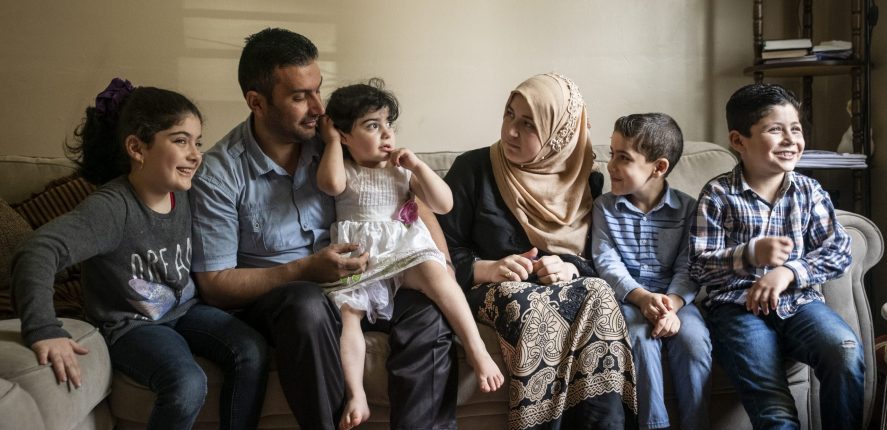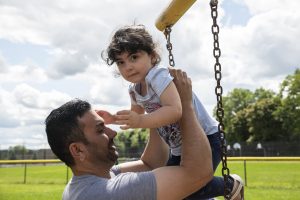
A new study conducted by local service providers and academic researchers examined the unique parenting challenges that Syracuse-based Somali, Bhutanese and Congolese refugees face while assimilating to a new culture. A summary of their findings and recommendations can be read below. To read the full whitepaper, click here.
Recently, focus group discussions were held with Syracuse-based Somali, Bhutanese, and Congolese community members to learn from their unique experiences. Researchers sought to better understand the challenges of newly resettled refugee parents in hopes of developing intervention programs that will support their transition as New Americans. Of particular interest were the ways in which these refugee families experience parenting as they encounter and try to adapt to a new culture.
Each of the groups spoken with expressed similar parenting challenges. Language barriers, lack of community resources, and few vocational opportunities were identified as having a detrimental effect on their ability to provide for their families. Language barriers play a role in New Americans entering the job market in low paying positions such as housekeeping and janitorial services, and they struggle to make ends meet. They look to refugee community centers for support in the form of education and training to improve their social standing, but many of these centers have lost financial support.
Parents also expressed frustration with their lack of knowledge when trying to navigate the healthcare and public-school system, leaving some of them with feelings of powerlessness and mistrust. Others described how their children, who pick up language and cultural cues more quickly, sometimes intentionally manipulate information when they are asked to interpret information or concerns from the school system. As a result of inaccurate information and a lack of cultural knowledge, some refugee parents expressed great fear that their children would be taken away from them by child protective services (CPS).

Ammar with his daughter Ritaj at Sunnycrest Park.
While the challenges to refugees are many, the focus groups also identified ways to enhance local resources that might improve parenting among New Americans. All three groups expressed a need for culturally compatible parenting classes aimed at maintaining communication with children, negotiating expectations, communicating with medical and school systems, adapting parenting skills, and exploring alternative ways to discipline children.
Additionally, the groups stressed the need to focus on English language and literacy education for adults to achieve better paying jobs and economic self-sufficiency. Acknowledging cuts in funding to refugee service agencies, it was suggested that volunteer tutors and role models be recruited from settled families who would be willing to help teach English and share experiences.
All of the groups expressed a strong desire to maintain and share their language and unique cultural values with their children and saw opportunities to achieve these goals through developing and partnering with positive support networks in their refugee communities, incorporating afterschool culture and religious classes for their children, and providing regular opportunities for community members to engage with their children by coming together to celebrate their culture. They also saw a need to provide community education to institutions such as public schools and healthcare settings to enhance cultural competence and respect among service providers.
To read the full whitepaper, click here.

Recent Comments